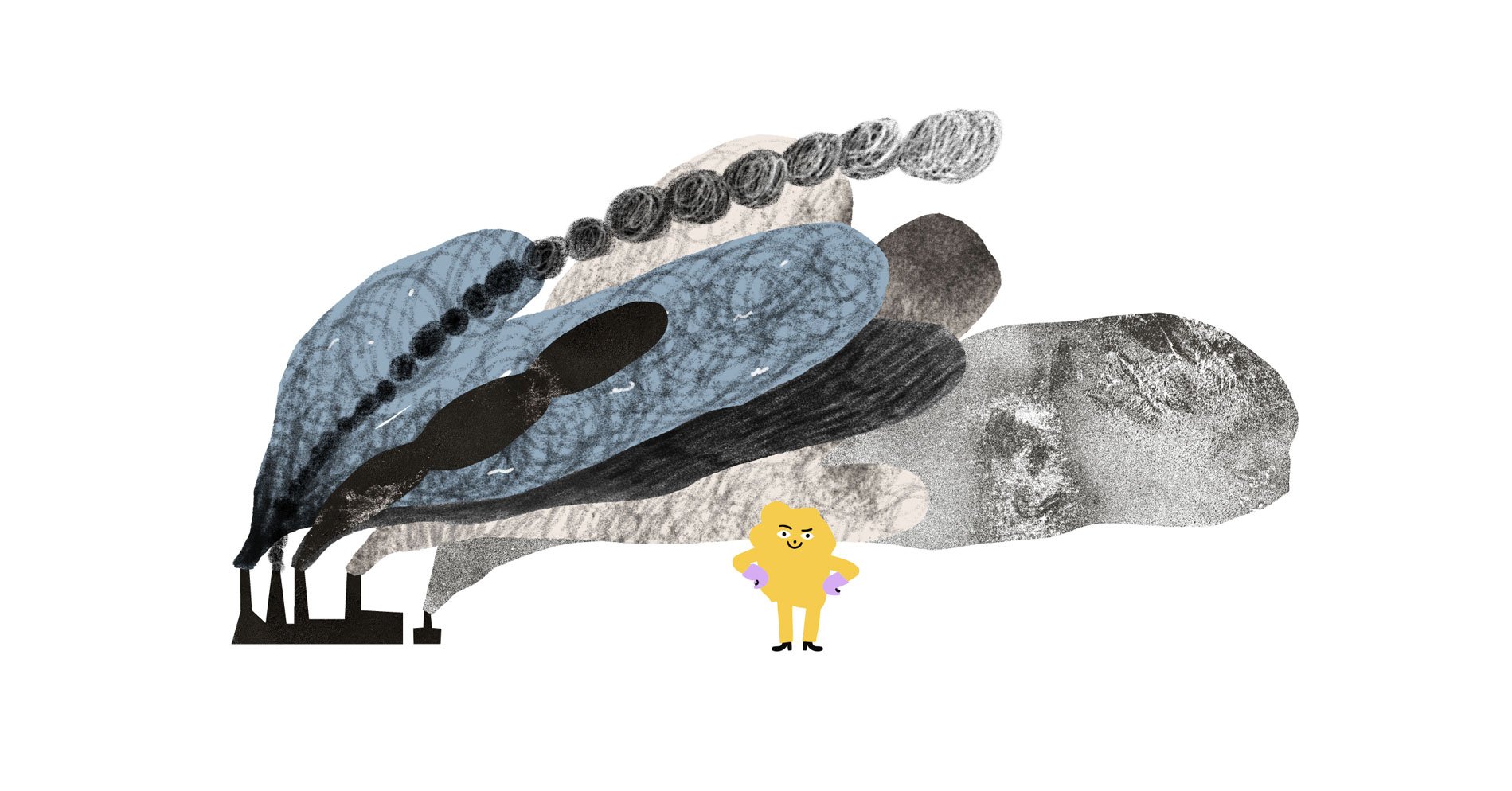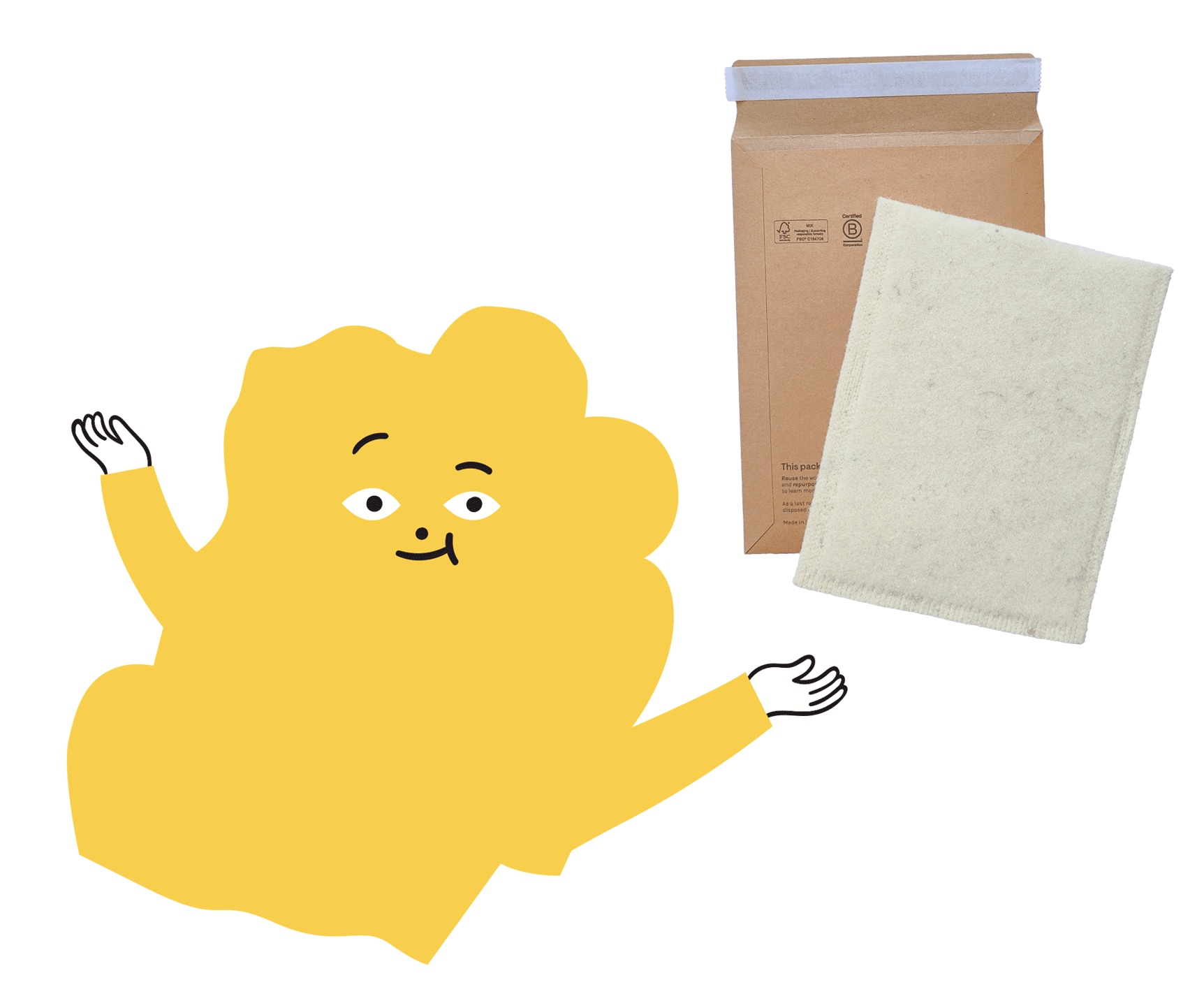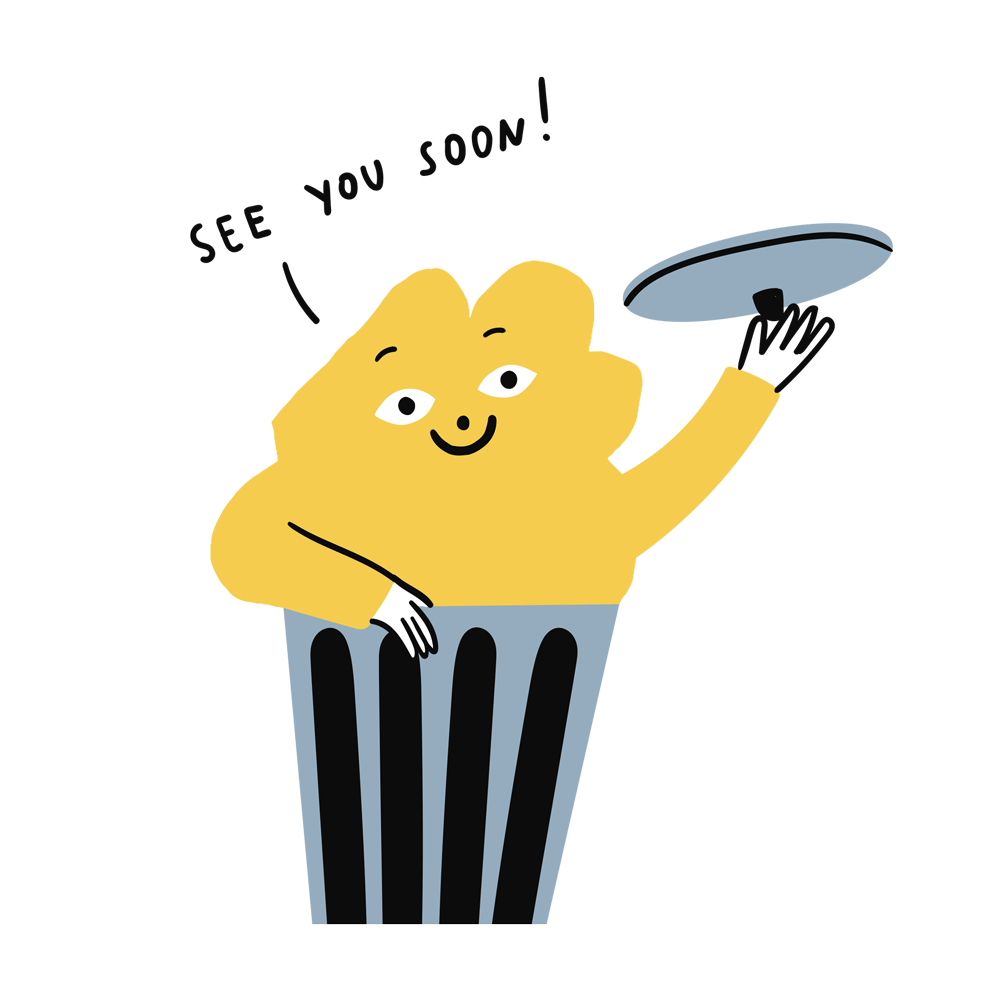
Let’s clean up the dirty packaging industry
Why we exist
OUR BEEF WITH FOSSIL FUELS
Burning fossil fuels is heating the planet
Human activity adds to the natural greenhouse effect causing the Earth’s temperature to rise. It’s a fact.
The primary source of man-made CO2 emissions? Burning fossil fuels. Yet many industries depend heavily on fossil fuels – including the packaging industry.
AND WITH SINGLE-USE PLASTIC PACKAGING
Single-use mindset is pouring fuel on fire
Plastics make a great packaging material. They’re durable, super lightweight, low cost and easily recyclable – in theory.
But plastic has another major problem (in addition to dependence on fossil fuels) — the supply chain of plastic packaging is built to be linear. The precious material we drain from Earth’s crust turns into garbage after just one use.
OUR SOLUTION
Not perfect, but better
We founded Woola to replace plastic bubble wrap with a wonderful regenerative material that would otherwise go to waste – sheep wool.
Replacing bubble wrap with surplus wool is just the starting point. What we’re really aiming to do at Woola is to shift the single-use mindset and make sure ecommerce packaging does not rely on fossil fuels.
Read more about Woola’s circular future on our blog.
Woola is now a Certified B Corporation.
“You can’t be the referee and the player. We needed a set of rules and an external party to audit them in order to know if we’re going in the right direction.” – Anna-Liisa Palatu, CEO and co-founder of Woola
The materials that make Woola ✨
The materials that make Woola ✨
Wool
We use leftover wool to make our products. This type of wool is so coarse that it cannot be used to produce yarn for the textile industry and is, therefore, usually burned or buried. Despite being rough, it still has all the great qualities of wool.
Paper
We use recycled paper for the outer layer of our Wool Envelope. Wool and paper layers are not glued or attached to each other to make it easy to separate the two for recycling. Both the paper itself and the envelopes are produced in Poland.
PLA
We use a small amount of polylactide acid (PLA) as a binding agent in our Wool Boxes. The PLA we use is synthesised from corn and is biodegradable.
Where does our wool come from?
We sourced the first batches of leftover wool from our partners in the United Kingdom, a country with long-standing sheep farming traditions and the most sheep in Europe. It came washed, processed and ready to be turned into products.
Simple and straightforward... but not transparent enough. So we switched over to sourcing wool locally in June 2022.
Using only locally-sourced leftover wool
Today, we only use wool sourced locally from Estonian farmers. We cherish our good working relationships with the farmers and keep building these as long-term partnerships.
As such, we have agreed with the farmers on a fair price for their wool, and take care of collecting the wool after it has been sheared, as well as setting up the extra steps needed for production.
The Know Your Wool process
But how do we ensure the wool is responsibly sourced? How do we know that it comes from farmers that share our values, especially when it comes to prioritising sheep welfare?
Well, similarly to how the financial industry has a standard Know Your Customer (KYC) due diligence process, Woola has a Know Your Wool (KYW) process that includes in-person visits as well as 3rd party auditing for farms we work with.
Read more about the KYW process here.
OUR PRODUCTION
Made in Paldiski
All Woola products are made in our factory in Paldiski, Estonia. It’s a small town with just 3,680 inhabitants, located on the North-Western coast of Estonia.
+ Why we picked Paldiski
The town of Paldiski has a unique history – it fell under the Red Army in 1939 and was turned into a Naval Base. In 1960, the city was completely closed to the public and kept secret. All development in the region was halted and the city was closed off with barbed wire until 1994. This is why we’re happy to support its redevelopment in the 21st century.
Paldiski is home to many manufacturing companies, but most of these specialise in metallurgy and heavy machinery. This means the jobs these companies offer are physically really demanding. Our processes are not, so we can provide suitable jobs to people who can’t work in such positions.
We were also drawn to the peninsula’s autonomous renewable energy grid that provides a part of our factory’s energy usage.
People
All of our employees play a role in Woola's future, so we've made everyone a partial owner. Everyone, from the department heads to production operators get stock options that turn into equity after vesting.
Additionally, Woola employees get sports compensation and additional days off, as a reminder to rest regularly.
We also pay our people well. As an example, our production team is compensated 26% above the average salary of €1459 for their field (manufacturing of textiles). That’s also 10% above average in manufacturing in general, where the average gross wage is €1651 (Statistics Estonia, as of Q4 2024).
We only hire employees through an FTE agreement, which grants them health insurance and access to unemployment benefits.
Environment
Doing something about climate change is why Woola started. Besides replacing as much plastic with wool as possible, we ensure we take responsibility for how we do it.
Our mission – to stop the worst climate doomsday scenarios from happening – works as a compass when making decisions, whether it’s regarding product development or production waste management.
Waste minimisation
Our goal is to reach zero waste production. Getting there means gradually improving the production methods to generate as little waste as possible until we reach zero.
Additionally, we upcycle wool residues of the production, developing them into future products. See below what’s currently in the works and what’s already done to minimise waste.
+ Some things that are already done
✔️ We are shredding wool residues that are left over as we make our products — and we’re developing a new product that will be made of shredded material.
✔️ We replaced plastic film with reusable pallet nets and pallet straps for securing boxes in transportation.
✔️ We are recycling all the plastic film that our vendors send us.
✔️ We are piloting a reusable cardboard box delivery solution with one of our clients.
✔️ We set up minimum order quantities to avoid shipping half-empty boxes.
✔️ And of course, we separate all waste according to its category: paper, packaging, and biowaste.
+ Some things that are currently in works
👉 We are in the middle of changing our entire production technology, which will improve quite a few things.
👉 First, we will no longer need to use non-stick spray.
👉 Secondly, it means we will replace our current wool knives that last only 4-6 months with an automated cutting solution that’s way more durable – the new blades will last for years.
👉 Lastly, it will drastically reduce our energy consumption — instead of 27kWh the new technology will use around 5-6kWh, and it will be able more efficient, i.e. produce more products in the same timeframe.
Responsible supply chain
We work closely with our suppliers to ensure that all materials used in Woola packaging are responsibly sourced, traceable, and meet our high standards for sustainability and ethics. Our Supplier Code of Conduct sets clear expectations for environmental responsibility, ethical business practices, and transparent collaboration across our value chain.
END OF USE
Reuse or recycle
Reuse
Customers can reuse Woola’s packaging as it’s in good shape or get creative and upcycle the wool in a DIY project.
Return
There’s no accessible circular system for wool, so we’re creating our own. Our circular system pilot launched in 2021.
Recycle
We’ve made separating paper and wool easy – so you can recycle the paper and reuse or dispose the wool.

Big problems can only be tackled by fixing parts of the bigger problem. It’s like solving a gigantic puzzle – and we love puzzles.
Keep an eye on this Notion board to follow our sustainability journey
Follow our journey on social media:


















